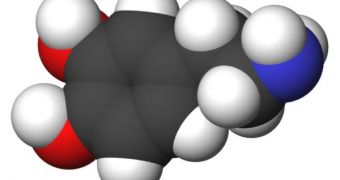Each of our brains is endowed with a type of memory known as "working memory," which is responsible with storing short-term data. This function allows us to resolve problems, to understand readings, and to be able to memorize fairly small bits of information to be used after a short time. Identifying it is simple, and everyone can try it. Read a new number and then try to write it down after a short while. If you find yourself repeating it, then your memory "buffer" will most likely have expired, and the data will have to be passed to the long-term memory storage portion of your brain, where it will be made available even after prolonged periods of time.
Dopamine is a crucial neurotransmitter and neuro-hormone in the human brain, which apparently seems to play a very important part in the way working memory behaves in each individual. Doctors have known for a long time that this function degrades with age, and that, in order to keep it functioning properly, people have to practice it daily. According to them, this process is also involved in diseases such as the attention hyperactivity deficit disorder (ADHD) and schizophrenia.
Basically, what experts think has triggered schizophrenia is a sharp decrease in the number of dopamine receptors in the parietal and frontal cortex. However, scientists in Sweden, led by Torkel Klingberg, who's a neurologist at the Karolinska Institute, in Stockholm, have discovered in the test they have been running – which has been aimed at finding new ways of training the working memory in order to deter the effects of old age – that even exercises can influence the number of dopamine receptors.
"The density of neurotransmitter receptors is known to change in psychiatric disorders like schizophrenia, and this has been considered a cause of the diseases. But now we see that cognitive activity also affects receptor density," Klingberg says. "This is an important consideration that applies to many findings of purported brain changes in mental disease. The research implies that alterations observed in schizophrenics may reflect altered attention or other behavioural features," Sol Snyder, who is a neuroscientist at the John Hopkins University in Baltimore, Maryland, adds.
Talking about future applications on ADHD and schizophrenia, Klingberg maintains that "We are now interested to see if a combination of cognitive training and pharmacological intervention could be more effective than either alone." His concern is prompted by the fact that kids suffering from ADHD are oftentimes treated with drugs such as Ritalin that act directly on dopamine and its receptors.

 14 DAY TRIAL //
14 DAY TRIAL //